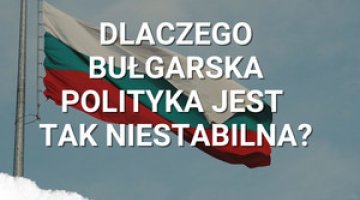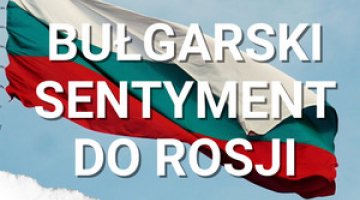Socio-political crisis in Bulgaria
Over the last two weeks, Bulgaria has seen its biggest wave of public demonstrations since 1997. The protesters were initially demonstrating against high electricity prices, but it gradually evolved into protests against the current socio-economic model and the entire political class. The demonstrations led to the resignation of the centre-right government of Boyko Borisov (21 February); he intended this move to calm the social situation, shift the responsibility for governing onto the left-wing opposition, and stop the decline in support for his party.However, the main opposition force would prefer early elections, which will most likely be called for May 2013. Regardless of who wins them, the phenomenon of the ‘Bulgarian movement of the indignant’, as well as the level of social frustration demonstrated by the outbreak of the street protests, is likely to lead to substantial changes in Bulgaria’s economic and social policy.
The basis and the scale of the protests
In the second week of February mass demonstrations began in many Bulgarian towns. The climax came on 17 February; according to multiple sources, up to 100,000 people gathered in protests across the country. A mass demonstration also took place on 24 February, already after Prime Minister Borisov’s resignation. Another national rally, on the occasion of National Liberation Day, has been called for 3 March.
The spark that led to the explosion of social discontent was the high electricity bills, which are a very important element in the modest budgets of many Bulgarian households. However, the roots of the protests have a much deeper cause, and stem from the country’s low standard of living, economic stagnation and a sense of hopelessness among young people. Bulgaria is the poorest country in the EU; the GDP level per capita (PPP) is 46% of the EU average. Approximately 22% of the population lives below the poverty line (according to the latest data from the Bulgarian statistical office in 2010, on which basis the poverty line is set at a monthly minimum expenditure of €145 per person). Borisov’s government gave top priority to macroeconomic stability and fiscal discipline, but it failed to bring about an economic recovery (see Appendix). The rise in protest sentiment was also fuelled by disappointment at the lack of progress in the fight against corruption, which had been the main slogan of the ruling right-wing government.
The political turning-point
In view of the dynamic and increasingly violent nature of the demonstrations (there have been three self-immolations, as well as sharp clashes with the police) Prime Minister Borisov of the ruling Citizens for Bulgaria’s European Development (GERB) announced his resignation as the head of government. GERB launched a sharp attack on the opposition; the Prime Minister’s statements included an accusation that a leader of the opposition Movement for Rights and Freedoms (DPS, a Turkish minority group) had previously plotted to murder him. At the same time, GERB declared its limited support for the creation of a government based on parties which are already in opposition, so that the elections could be held this July, in accordance with the constitutional deadline. The opposition forces – the strongest of which is the post-Communist Bulgarian Socialist Party (BSP), as well as the DPS, which has a much smaller number of deputies, and the extreme nationalist group Ataka – are nevertheless in favour of holding early elections. They have accused the right-wing GERB of leading Bulgaria to the brink of civil war, and have presented Borisov’s resignation as a panicked escape from responsibility. In view of the opposition’s reluctance to form a government, President Rosen Plevneliev will have to appoint a caretaker government in early March, and call early elections this May. According to the constitution, the president must ask the parliamentary parties three times to form a government, and after exhausting these options he automatically dissolves the parliament, appoints an interim government and calls elections.
The Bulgarian movement of the indignant
Predominant among the protesters are young people, chanting anti-system slogans and focusing their anger on the energy ‘monopolies’ (there are three international distribution companies – the Czech CEZ and Energo-Pro, and the Austrian EVN – in control of the regional energy networks in Bulgaria). The demonstrators do not have any obvious leaders, but the most prominent of them include radical leftist activists, small businessmen, and leaders of existing initiatives targeted at local authorities (for example those in Varna, where protesters have been demanding the resignation of the mayor on suspicion of corruption). The protests have also gathered social activists and ecological groups, which forced through a ban on shale gas production in early 2012; as well as the initiators of protests in mid-2012 against the high prices of petrol.
The protest movement’s structures are slowly starting to crystallise, but it will probably continue to be somewhat cellular in nature, to communicate through social networking websites, and be characterised by the absence of any clear decision-making centre. The first meeting of the citizens’ committee (whose composition was not made public), representing local protest committees, was held on 23 February; it approved a list of demands and submitted it to President Plevneliev. The list calls for a change to current state policy on public utilities, including immediate cessation of litigation against customers of the energy distributors and municipal companies, their buy-back from private investors, and the full disclosure of the privatisation contracts. It includes a number of political demands, including the withdrawal from early elections; a change to the electoral law from proportional representation to a majority system; making it possible to dismiss deputies and members of local authorities; and the introduction of ‘50 per cent civic quotas’ onto regulatory bodies.
Forecast
Bulgaria has entered a period of instability and acute political struggle which will last for several months at least. GERB will continue its attacks on the opposition, reminding the public of the corruption scandals which affected the BSP and DPS government coalition (2005-2009), while at the same time presenting itself as the only responsible political force. The Prime Minister’s resignation will allow GERB to avoid a significant drop in support. Nor have the opposition groups been weakened by the crisis – although they have been temporarily pushed onto the defensive by GERB, and criticised for their unwillingness to take responsibility and form a government – because they have a fairly stable electoral base. Yet it will be difficult for them to gain new followers in the ‘anti-system’ protest movement, which is dominated by an aversion to any party activity. The heterogeneous Bulgarian ‘movement of the indignant’ is actually rather unlikely to generate its own political representation which could pose an electoral challenge to the most important parties. President Plevneliev has announced the appointment of a ‘public council’, composed of representatives of the protesters, as advisers to the caretaker government; but this is unlikely to become the nucleus of a political formation.
We should not expect the upcoming elections to lead to the establishment of a stable parliamentary majority. In recent polls, the two main political forces (BSP and GERB) enjoyed the support of around 20% of voters, which means that neither of them will be in a position to create a government. All the other parties are hovering on the border of the electoral threshold, which means that after the elections there may be a problem with forming a stable majority in parliament. Regardless of the future government’s composition, it is expected to move away from the existing paradigms of economic policy. Under the influence of the protests, the Bulgarian Socialist Party has announced the need to ‘make a radical turn left’, including departure from the flat tax (which they themselves introduced in 2008), and sharp increases in social spending and pensions. The rhetoric of GERB representatives has also seen a growing emphasis on the need for social reform and an openness to implement some of the demonstrators’ demands. The country’s relatively good financial situation and economic development forecasts will probably permit a partial departure from the policy of fiscal discipline, as well as an increase in social spending.
Appendix
Bulgaria’s main macro-economic indicators
|
|
2009 |
2010 |
2011 |
2012 |
2013 (est.) |
|
GDP (annual percentage change) |
-5,5 |
0,4 |
1,7 |
0,8 |
1,4 |
|
General government balance (% of GDP) |
-4,3 |
-3,1 |
-2,0 |
-1,0 |
-1,3 |
|
General government debt (% of GDP)
|
14,6 |
16,2 |
16,3 |
18,9 |
17,1 |
|
Unemployment |
6,8 |
10,3 |
11,3 |
12,2 |
12,2 |
Source: European Commission




